What are these Swimming Bugs, and how do I make them go away?
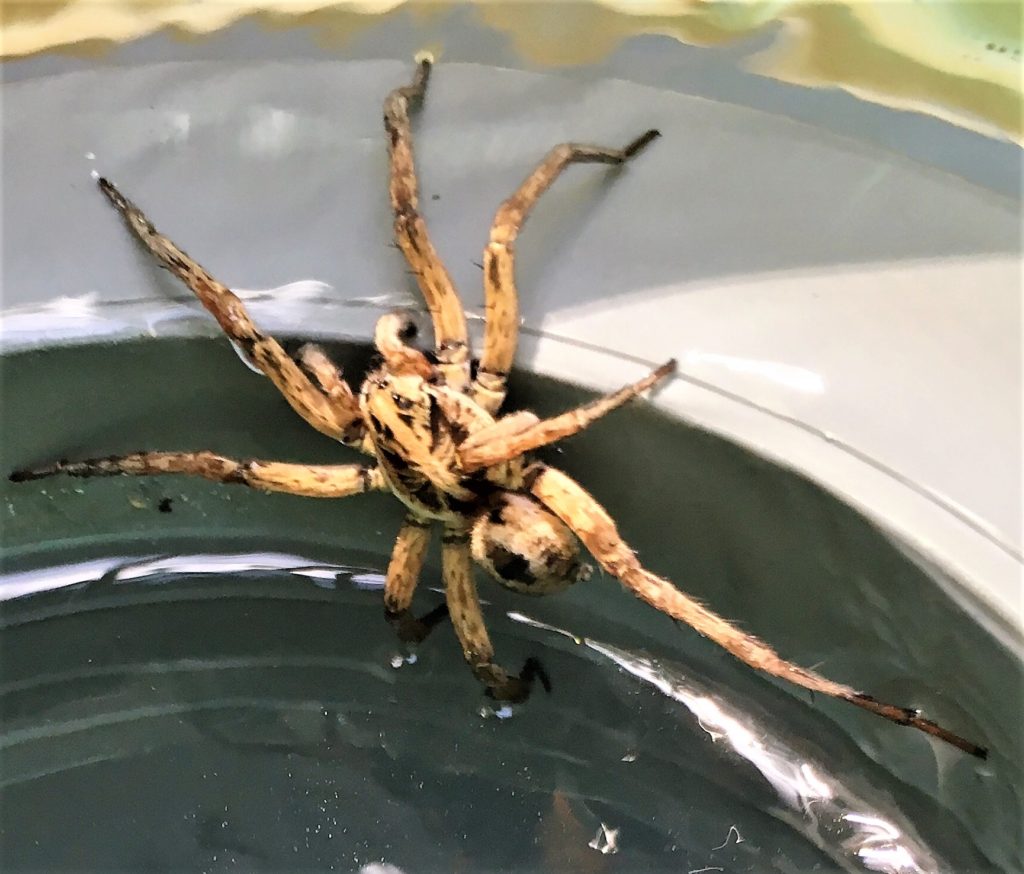
The Fishing Spider is not a swimming bug, it is an arachnid. Due to appearance, is often confused with the Wolf Spider. This diurnal hunter can often be seen skating across the tops of swimming pools and, at times, diving beneath the surface. This aquatic arachnid feeds upon insects, tadpoles, and fish. It is not uncommon for the Pool Operator to find one submersed in a skimmer basket. But, how can you tell if it’s a Wolf or a Six-spotted Fishing? That’s as easy as telling the difference between a “Happy Face” and a “Sad Face”: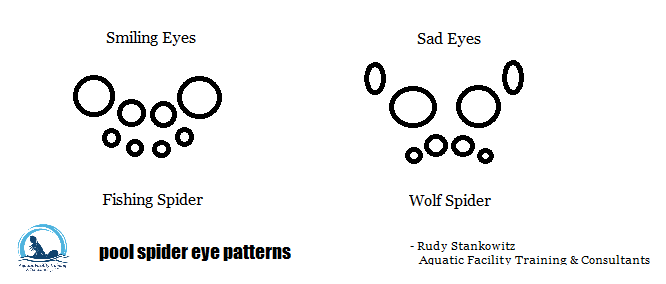
According to Spyderbytes, a blog dedicated to spiders, these predatory scuba divers (The six-spotted fishing spider) can “breath underwater” due to fine hairs upon their abdomens use to collect bubbles of air.
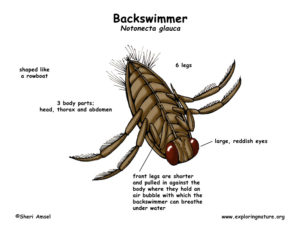
The backswimmer, as its name suggests, swims on its back. This predatory Hemiptera uses its long paddle-like rear legs to propel it through the water after prey. Its diet includes other aquatic insects, tadpoles, and fish. Sometimes referred to as a “water wasp,” this frequent visitor to swimming pools packs a painful sting. The backswimmer can breathe underwater by carrying an air bubble, which replenishes from the surface from time to time, on its body.
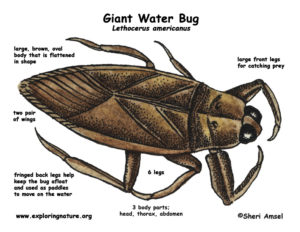
The Toe-biter (giant water bug) is the largest of the Hemiptera. This predator feeds on fish, frogs, small turtles, and snakes at over two inches long. According to Scientific American, Once they seize their prey, they inject their poisonous digestive juices. Occasionally, these aquatic giants will grab hold of a human toe and unleash a powerful bite. The Toe-biter can breathe underwater by carrying an air bubble, which replenishes from the surface from time to time, on its body.
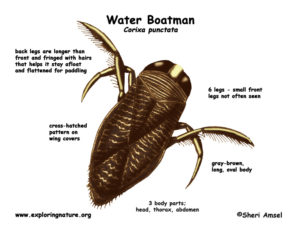
Water Boatmen primarily live off of algae and other aquatic vegetation, though some will feed upon mosquito larva. In an interview with Dailymail.com, James Windmill of the University of Strathclyde called the Boatman “the loudest animals on Earth” when referring to the sound they made compared to their small size.
Similar article 5 Secrets to Keeping Ducks out of Your Swimming Pool
They are often confused with Backswimmers but have no fear – these bugs do not bite people. The Water Boatman can breathe underwater by carrying an air bubble, which replenishes from the surface from time to time, on its body.
Belostomatidae (AKA: Eastern Toe Biters); In Florida, we call ’em “Alligator Fleas.”
A little dish soap goes a long way. Hydrogen atoms have a bit of a positive charge that makes water “sticky.” The hydrophobic portion of the dish soap forces these H2O molecules apart, reducing surface tension. By reducing surface tension, we actually make the water “wetter.” Bugs that normally scurry across the surface suddenly find that they no longer have the ability to float. Bugs that come to the surface for air suddenly can not breach the very surface.
A couple of squirts will do. Dishwashing soaps are phosphate-free nowadays, so you’ll not create a whole other problem in the process as long as you don’t overdo it (stay away from the antibacterial stuff). You’ll find quite a few commercially made products available for this purpose; I suppose putting “Water Bug Repellant” on a label vs. “Palmolive®” has more appeal in a pool store, but the supermarket dish soaps do come at a much lower cost. The dish soaps also make a great degreaser for cleaning your filter elements (though you could opt to kick it old school with some TSP for your filter cleaning).
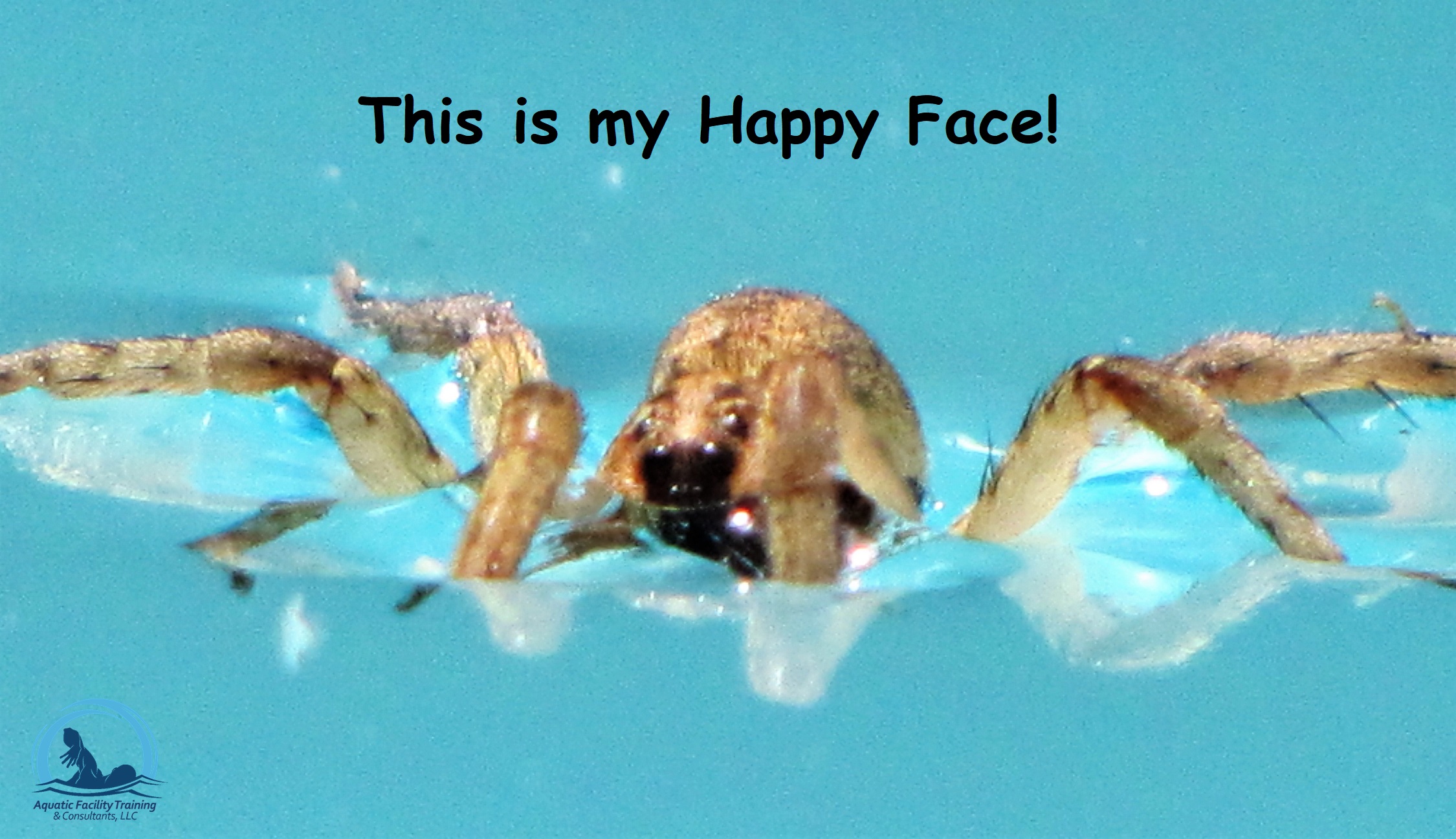
All diagrams used are with written permission from Sheri Amsel, www.exploringnature.org:
Missouri Department of Conservation
Video credit – Adventures of a Pool Girl
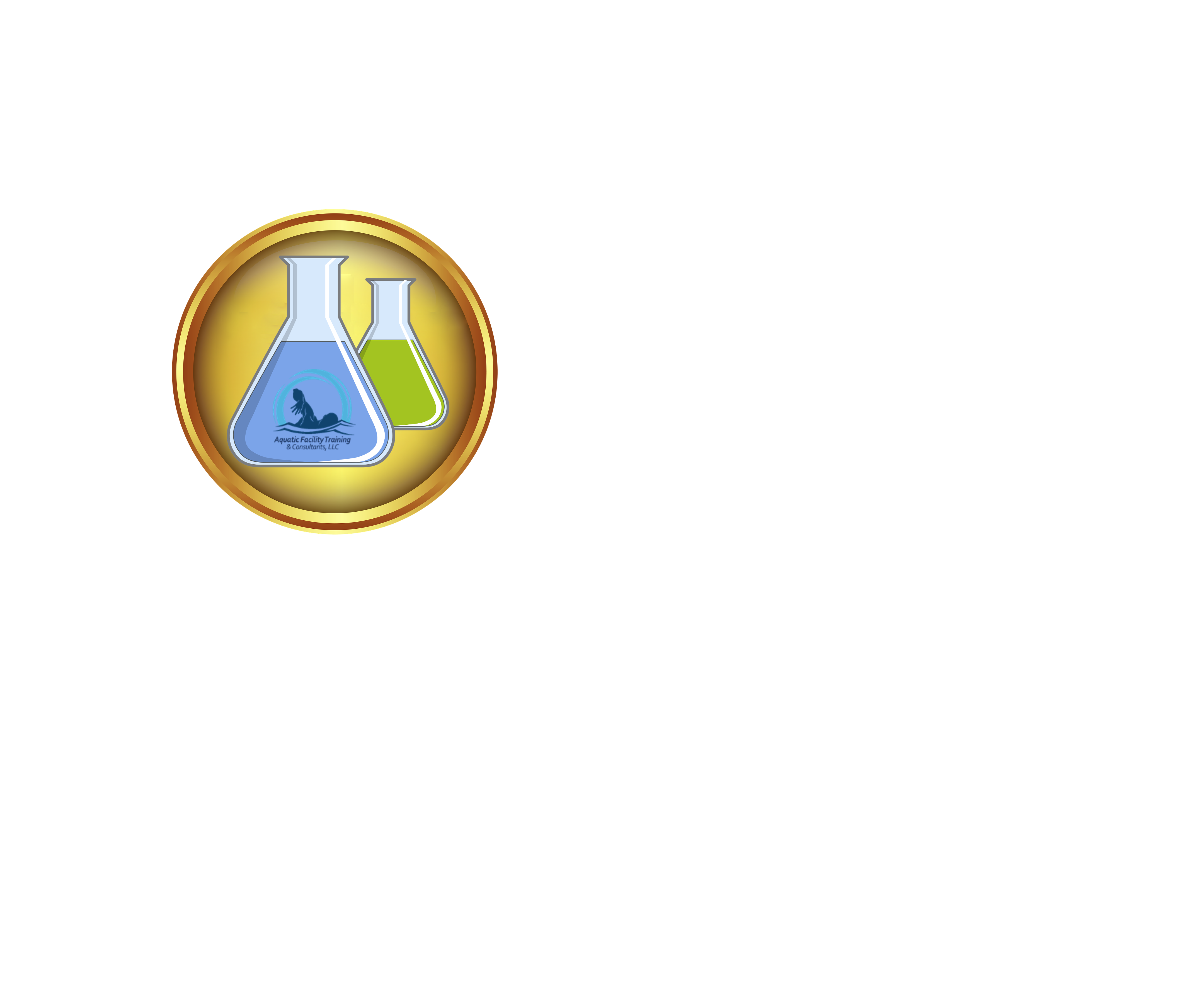
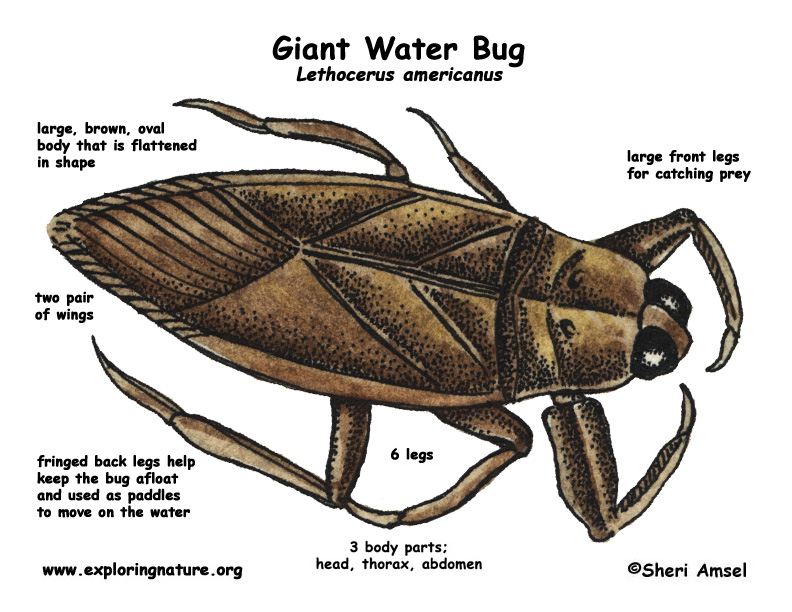

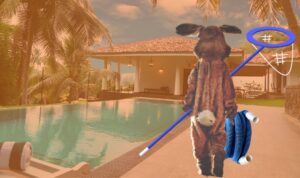
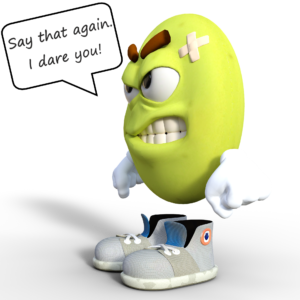


Great Informative article
Thank you Manish and thank you for reading!
This was great, it explained alot. Thank you.
Thanks Wayne! Thank you for reading ?
Wow! Didn’t know there were so many types! Thank God for dishwashing soap, huh?
Right? ? Thank you for reading Amy! ?
I’ve noticed some bugs swimming around in my pool. Reading that dish soap is a good degreaser. This is great to remember, especially since my pool filter is broken! Maybe finding a pool contractor to repair my pool would be the best option here.
Probably a better place to start before we tackle the bugs ?
Pingback: 5 Secrets to Keeping Ducks out of Your Swimming Pool - Pool Operator Talk News🗞